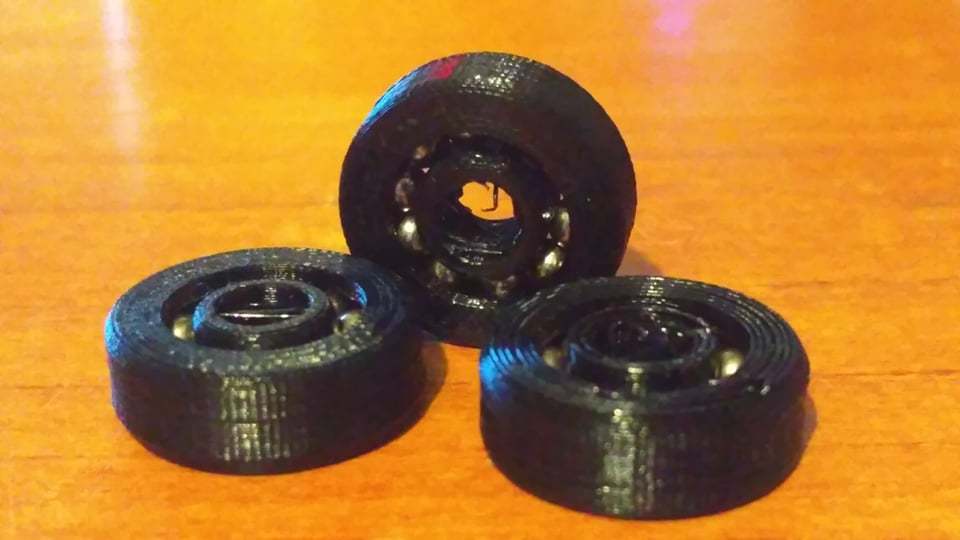
Various ball bearings for 3/3.1mm steel balls
thingiverse
Bearings You Can Create: 634, 625, 635, 685, 696, 606, 626, 636 And numerous other bearings with various dimensions. For each bearing, you will need ten 3.1mm (or 3mm?) balls. Combine the files to obtain an outer diameter of 16/17/18/19/20/22mm and an inner diameter of 3/4/5/6mm. All bearings are six millimeters in height. For one bearing, you will need one outer part and one inner part. The "tight" bearing has much less play in it but still spins relatively easily. At high RPMs, it might get hot and destroyed, but for common purposes (3D printers, CNCs or whatever), they should work very well. The "sloppy" design is not as sloppy as it sounds, but it is recommended to print that one for higher RPM and low friction. If you spin it by hand, it will keep spinning for a short while. There is a slight chance your printer will print it differently, and in that case, you might need a little adjusting. To customize it in AutoCAD would be the best option (I included the .dwg file), but scaling it in your slicer just a tiny bit should work well. I ran out of bearings and even though I ordered like a hundred of them, waiting hurts me. In Slovakia, small bearings are priced at 5€+.. So I decided to try and design a ball bearing since I had some steel balls in a box (all came from ball bearings a long time ago). I measured the balls, and the smallest one was 3.1mm. 3.1 is an odd number, and I believe my digital caliper is wrong. I didn't find any information about using 3.1mm balls in bearings. Anyways, I designed a bearing for these balls, and they work nicely. It's very hard to take the inner part out, but if needed, along with severe destruction, it is possible by tearing the outer part with cable cutters. Printing: I myself am printing them from PLA, and it works fine. ABS should work better though. I suggest printing at 0.1mm if you can; I'm printing at 0.15, and everything is fine. 0.2 should be okay too. Nozzle size shouldn't matter, but mine is 0.4mm. Assembly: To assemble them, hold the outer part slightly above the inner part to insert ten 3.1mm balls into the outer part (no force required) and finally, as you apply some force from the top (you can use pliers or put it in the vise, though, a hammer should work as well) until the inner part snaps into the center. Watch this video: https://youtu.be/--9aDPPiXN8
With this file you will be able to print Various ball bearings for 3/3.1mm steel balls with your 3D printer. Click on the button and save the file on your computer to work, edit or customize your design. You can also find more 3D designs for printers on Various ball bearings for 3/3.1mm steel balls.
